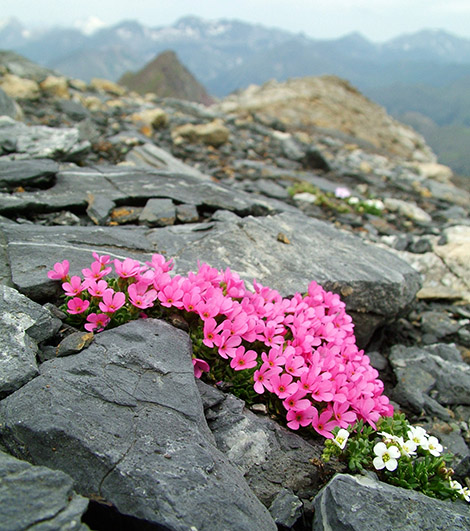Global S&T Development Trend Analysis Platform of Resources and Environment
| The great acceleration reaches new heights | |
| admin | |
| 2018-04-04 | |
| 发布年 | 2018 |
| 语种 | 英语 |
| 国家 | 法国 |
| 领域 | 地球科学 |
| 正文(英文) | An international team of researchers1, including a CNRS researcher at the department of Écologie et Dynamique des Systèmes Anthropisés (CNRS / Université de Picardie Jules Verne) has observed an acceleration in the increase of biodiversity on mountain peaks in Europe. This is a new indicator of the great acceleration: an increasingly rapid inflation of different parameters around the world (glacier retreat, coral bleaching, etc.) seen in recent years as a result of climate change. Mountain ecosystems could be seriously disturbed as a result. Their findings appear in the 4th April 2018 edition of Nature.
The acceleration of CO2 emissions in recent decades have caused many indicators, such as socio-economic, meteorological and biological ones, to race. The scientific community calls this phenomenon the great acceleration. In a new study, a team of researchers from 11 countries demonstrated that this acceleration is visible today in the most remote reaches of the planet: mountain summits. The scientists brought to light the increasingly rapid colonisation of these summits by lower-level flora.
The study looked at 302 peaks from different mountain ranges in Europe (Alps, Pyrenees, Carpathians, etc.). In 87% of these summits, plants benefited from increasingly mild weather conditions. This migration is also seen in species known for being bad or slow dispersers. The number of plant species colonising European mountain tops between 2007 and 2016 is thought to be five times superior to the amount seen between 1957 and 1966. Researchers also found this trend to be consistent with an increase in temperatures. They noted that other global factors such as nitrogen atmospheric deposition related to pollution, or the presence of humans on mountain summits, do not explain this acceleration. Until now, no mountain top species has been observed to disappear, but cohabitation may not continue in the long term. Certain plants found on mountain peaks may eventually disappear, unable to migrate to higher altitudes or compete with more competitive lower-level species, leading to the risk of creating an imbalance in mountain ecosystems.  © Swiss National Park/Hans Lozza « Phyteuma hemisphaericum ».  © J.V. Ferrández/ IPE-CSIC/ SPAIN. « Androsace ciliata » et « Hutchinsia alpina » at the top of Punta Suelza (2972 m Pyrenees). Download the press release :  Notes:1 Including Damien Georges, researcher at the International Agency for Research on Cancer (IARC) and post-doctorate at Aarhus University in Denmark at the time of the study. Bibliography:Accelerated increase in plant species richness on mountain summits is linked to warming. Manuel J. Steinbauer et al., Nature, 4 avril 2018, DOI : 10.1038/s41586-018-0005-6 Contacts: CNRS Researcher | Jonathan Lenoir | T +33 (0)3 22 82 54 67 | jonathan.lenoir@u-picardie.fr |
| URL | 查看原文 |
| 来源平台 | Centre national de la recherche scientifique |
| 文献类型 | 新闻 |
| 条目标识符 | http://119.78.100.173/C666/handle/2XK7JSWQ/107011 |
| 专题 | 地球科学 |
| 推荐引用方式 GB/T 7714 | admin. The great acceleration reaches new heights. 2018. |
| 条目包含的文件 | 条目无相关文件。 | |||||
| 个性服务 |
| 推荐该条目 |
| 保存到收藏夹 |
| 查看访问统计 |
| 导出为Endnote文件 |
| 谷歌学术 |
| 谷歌学术中相似的文章 |
| [admin]的文章 |
| 百度学术 |
| 百度学术中相似的文章 |
| [admin]的文章 |
| 必应学术 |
| 必应学术中相似的文章 |
| [admin]的文章 |
| 相关权益政策 |
| 暂无数据 |
| 收藏/分享 |
除非特别说明,本系统中所有内容都受版权保护,并保留所有权利。
修改评论